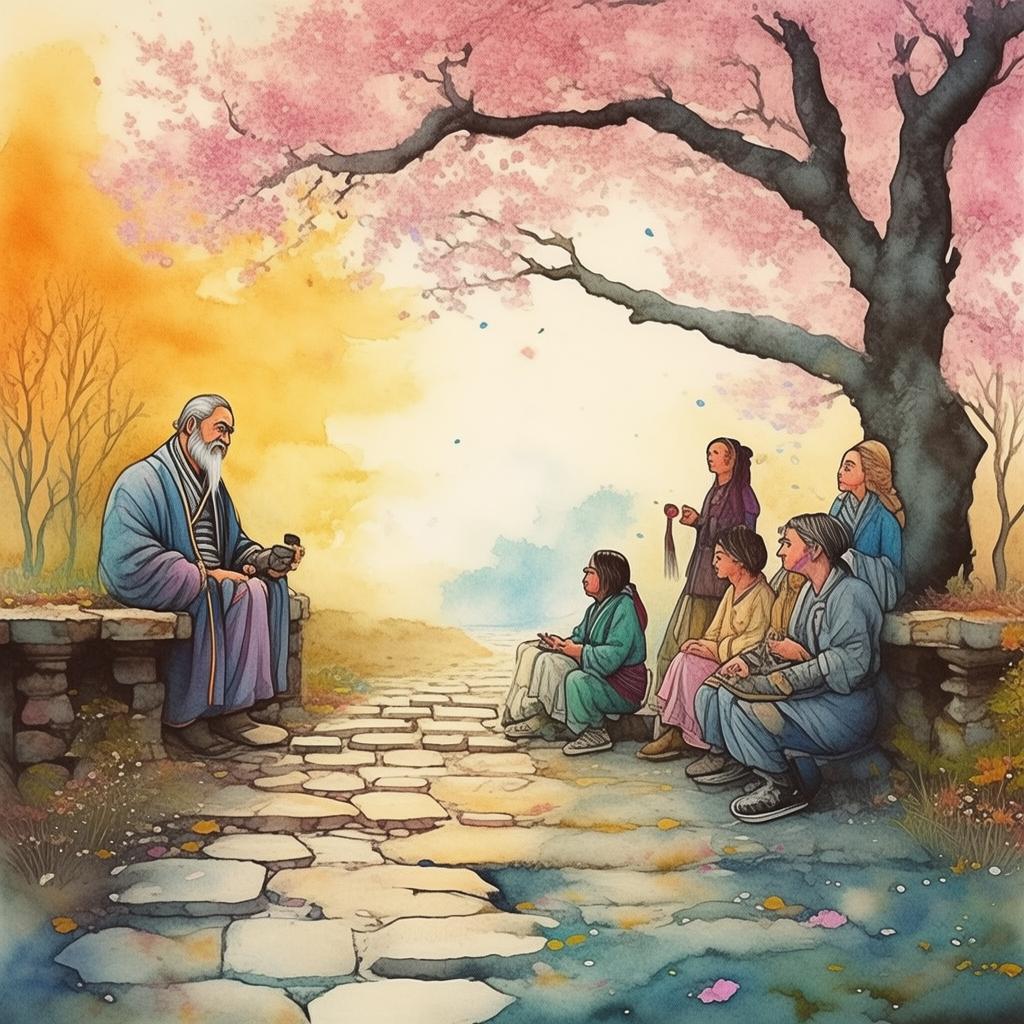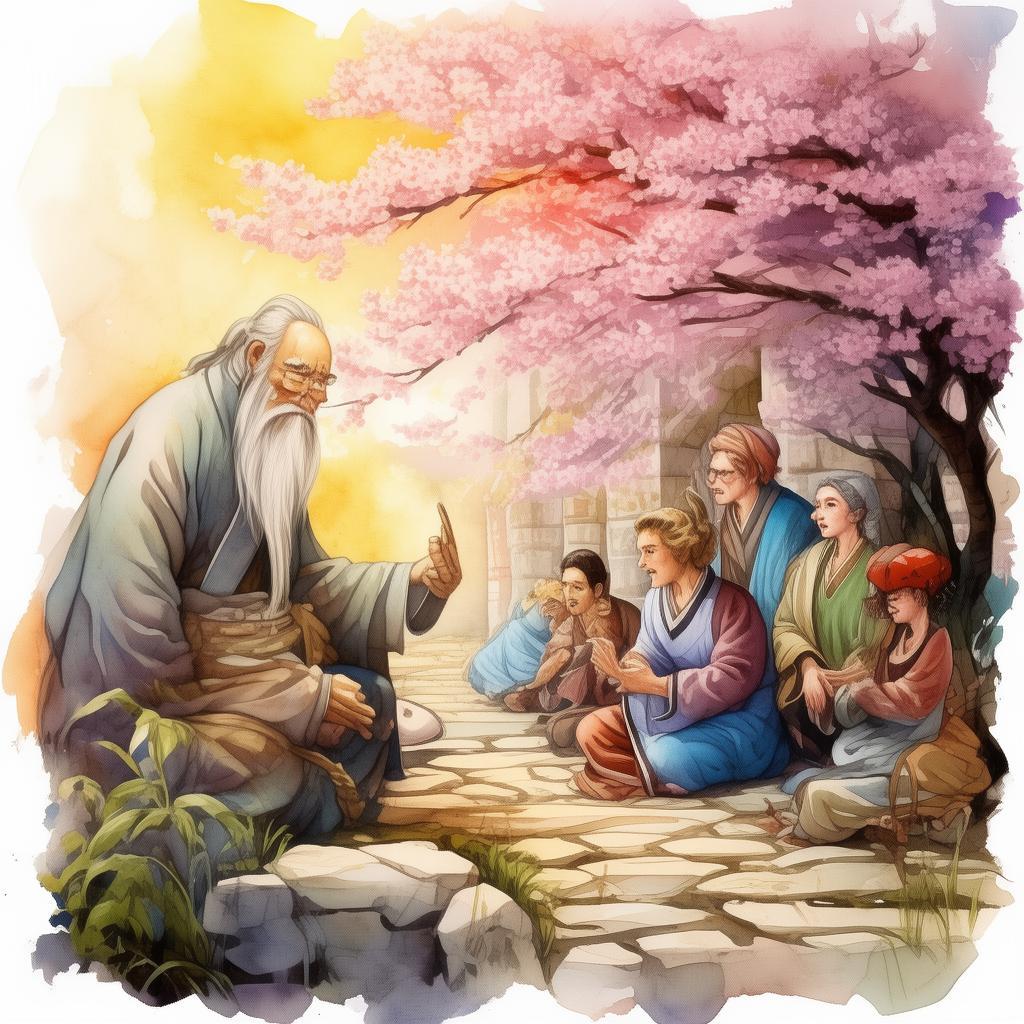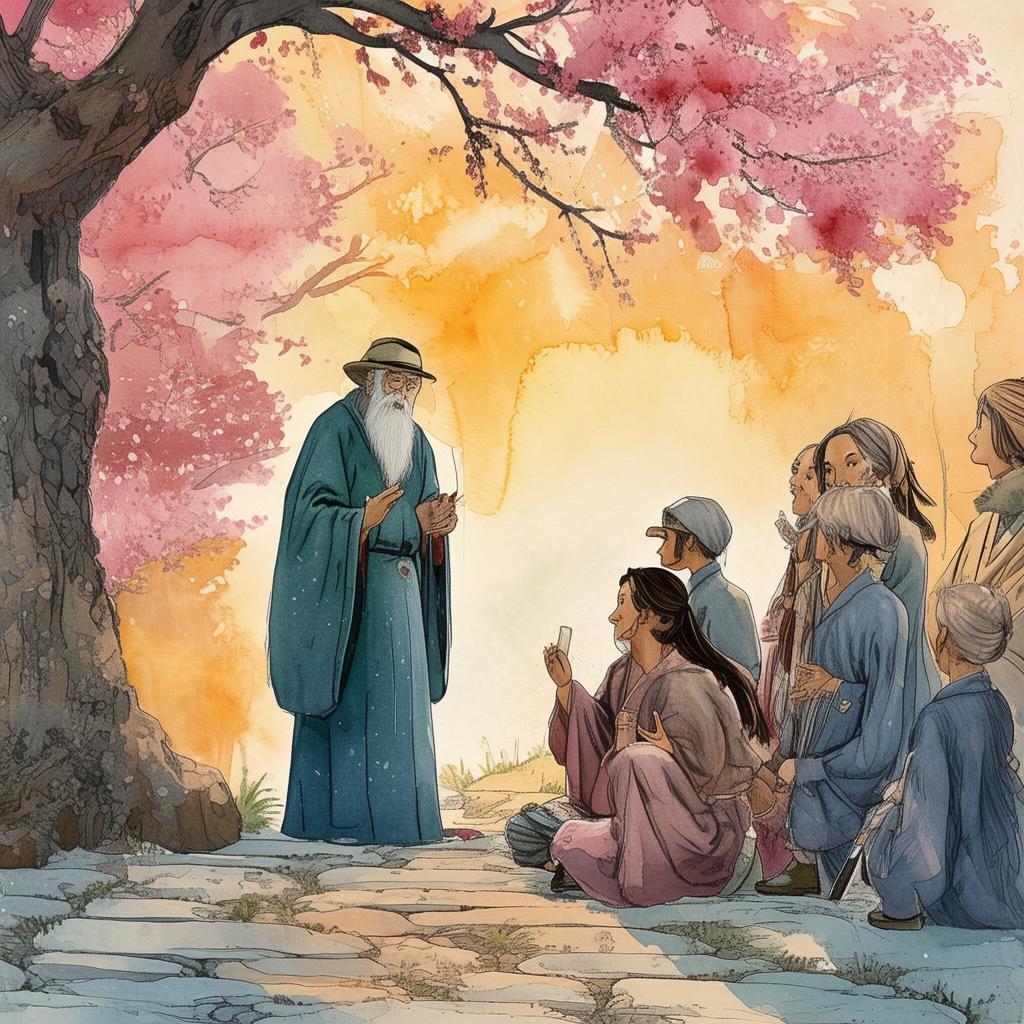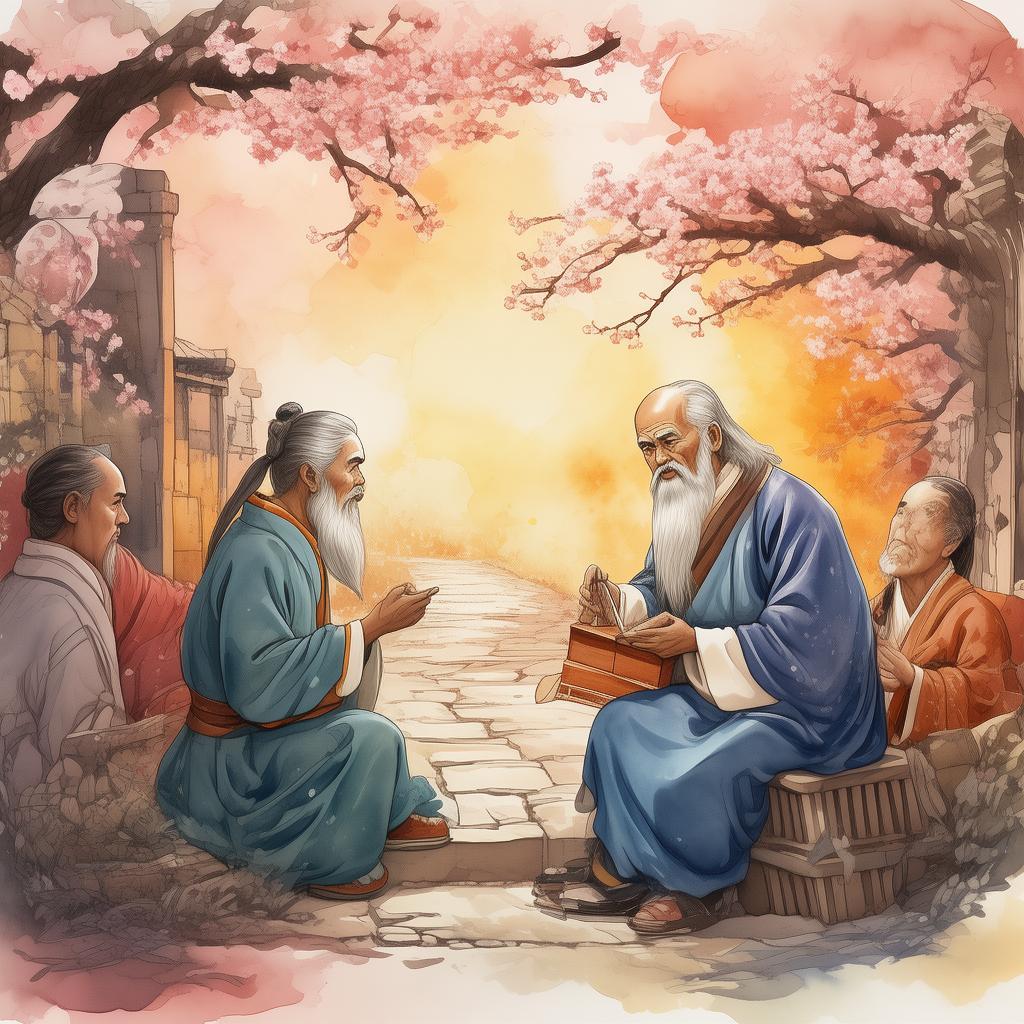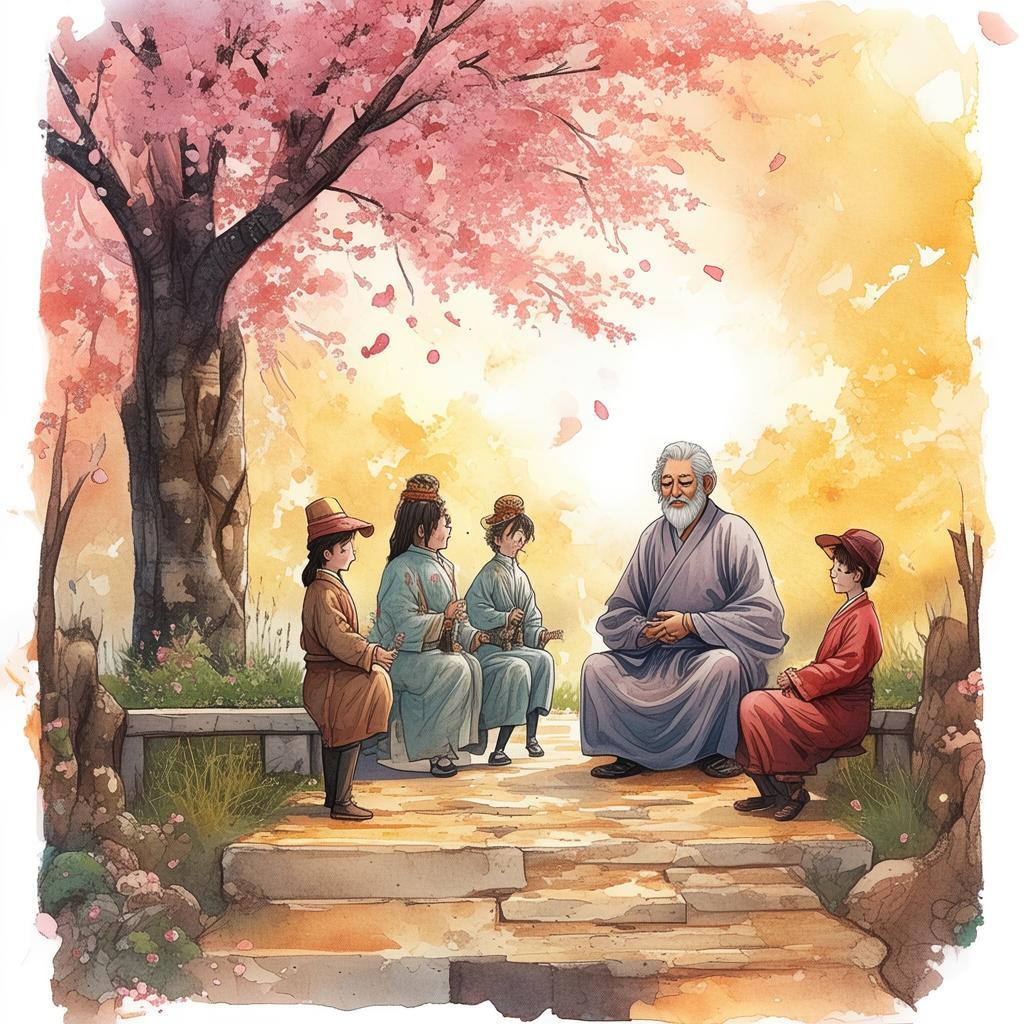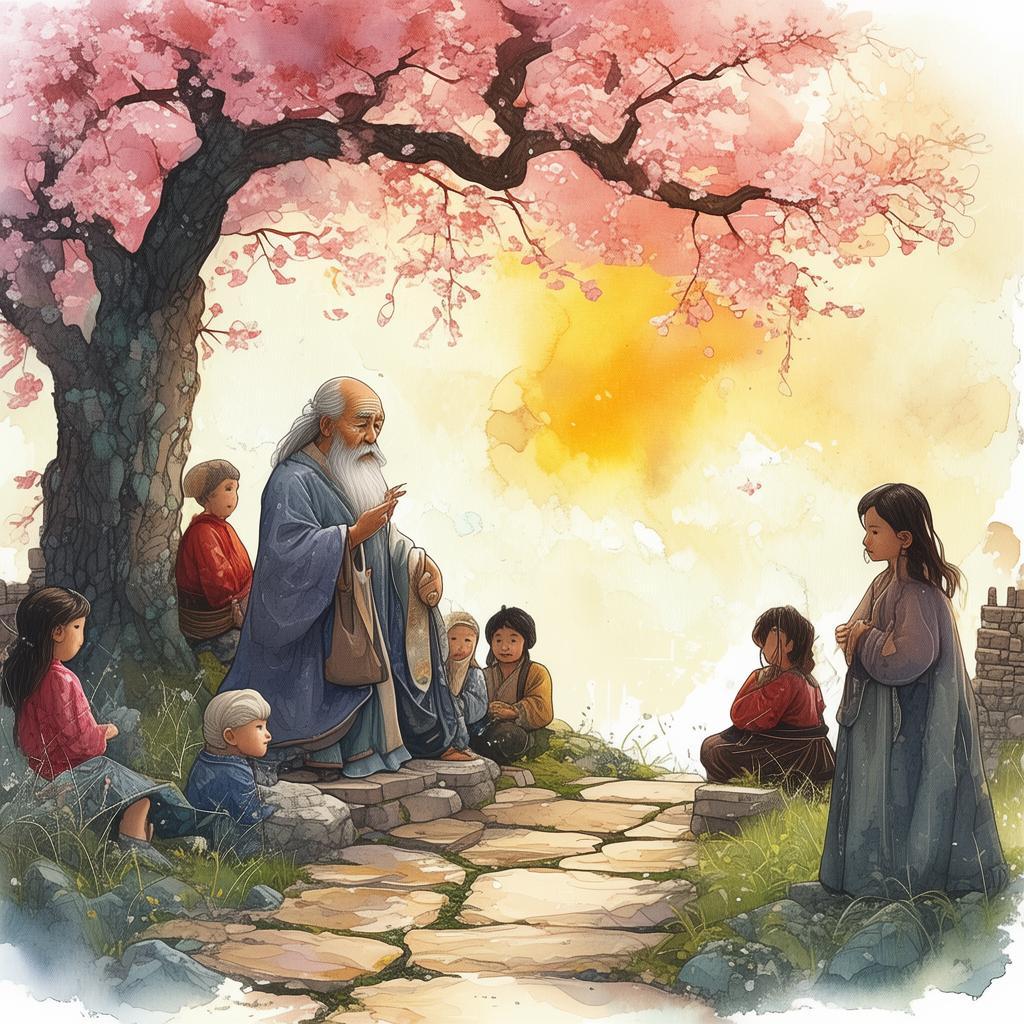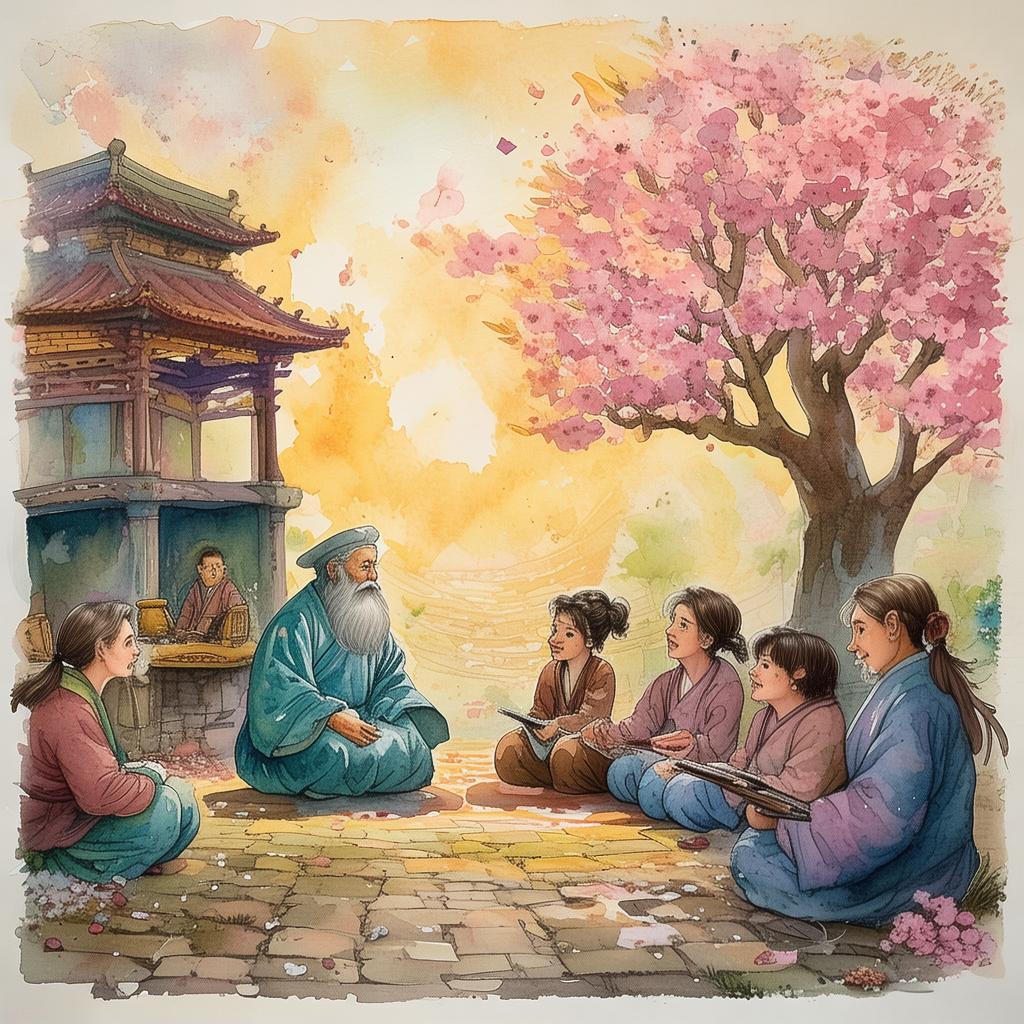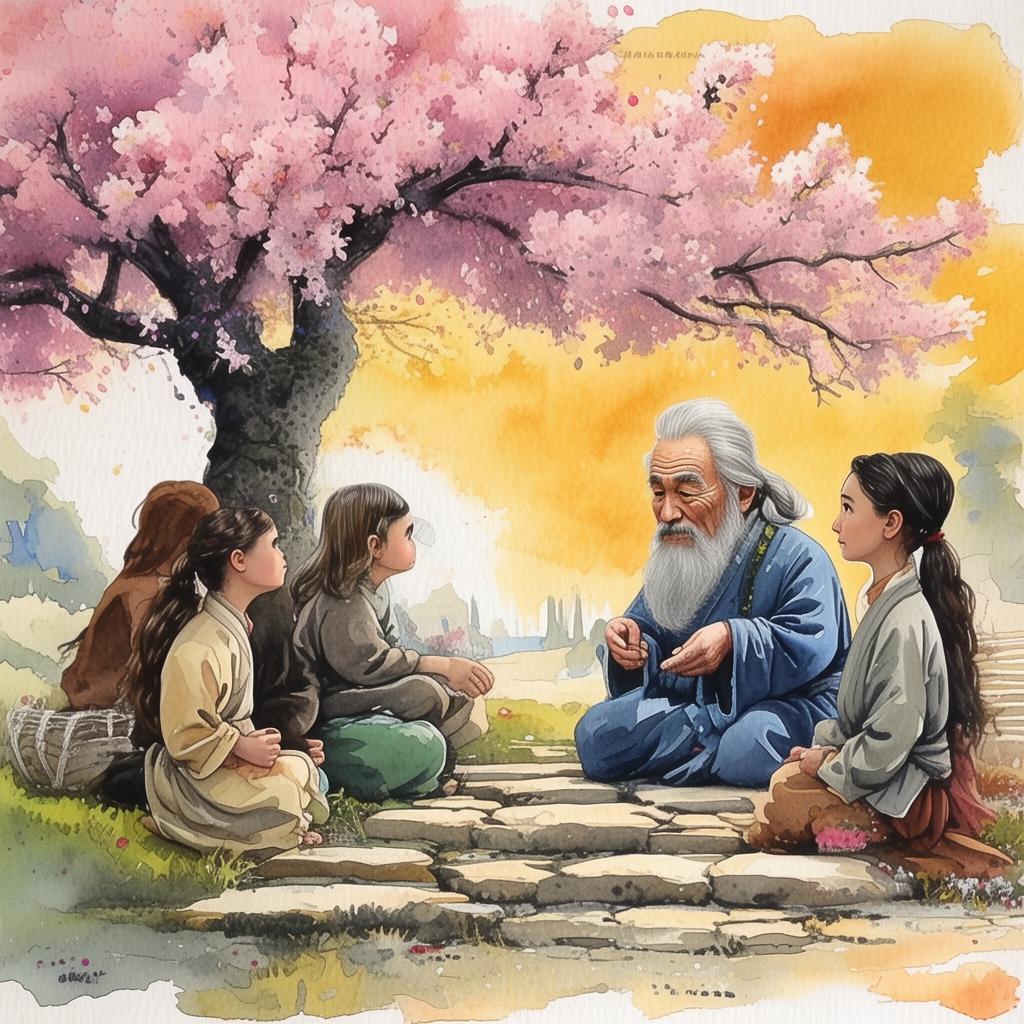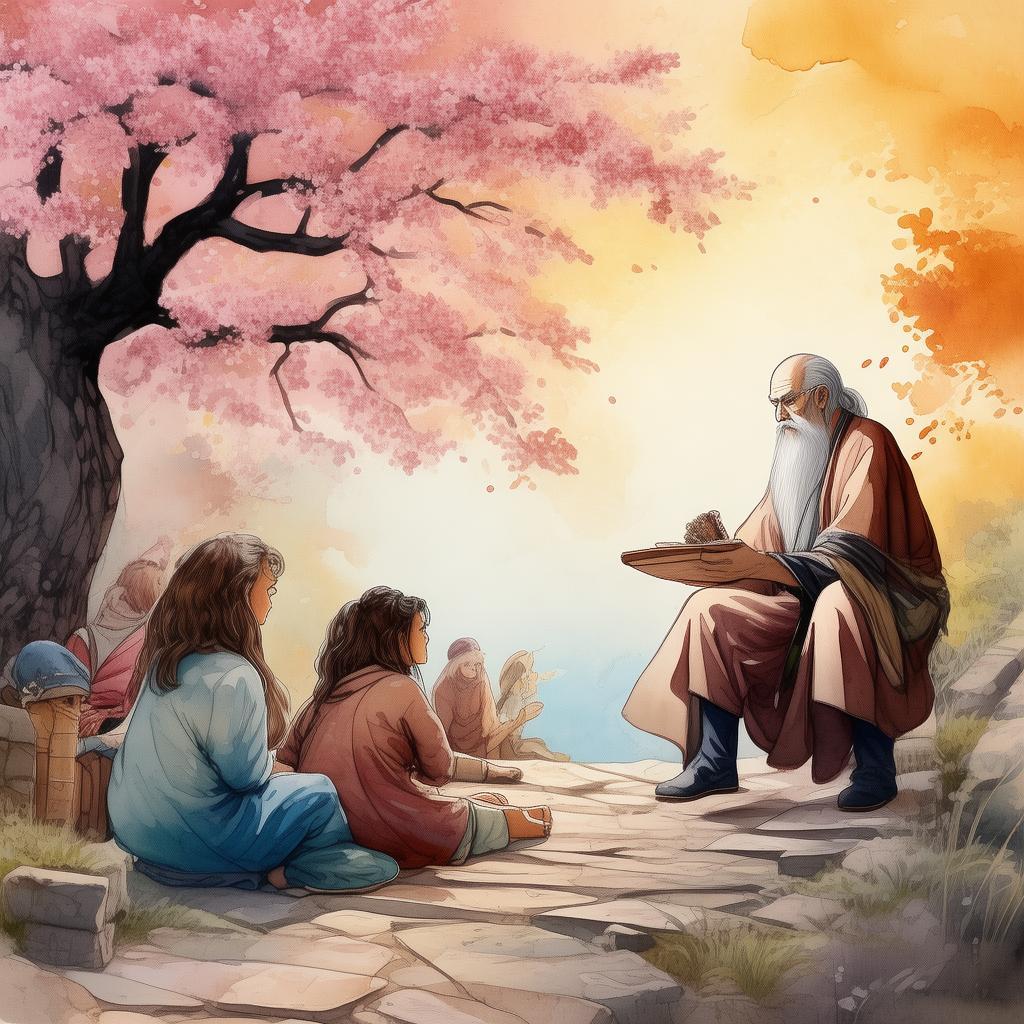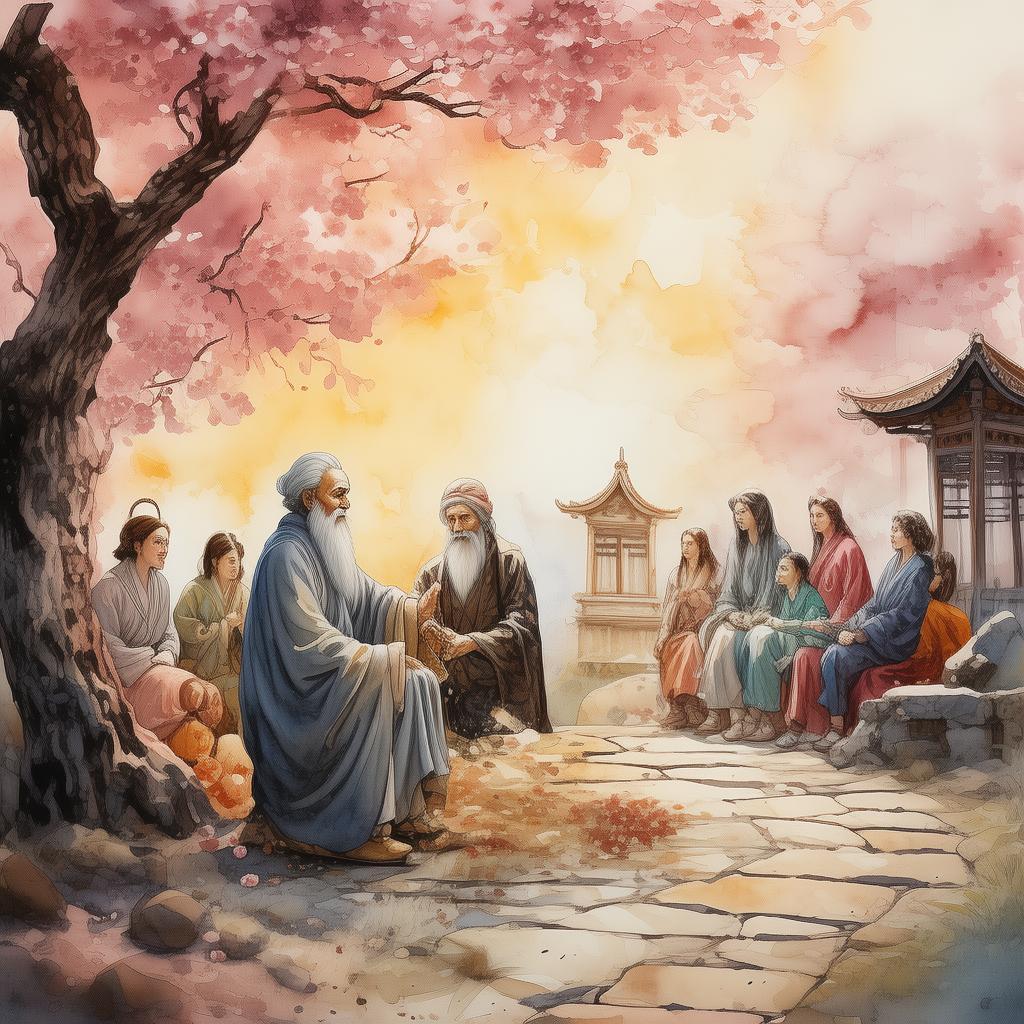Whispers of the Wounded: A Healing Symphony
The air was thick with the scent of smoke and the metallic tang of blood. In the midst of the chaos, General Liu stood amidst the battlefield, his armor dented, his face etched with lines of weariness and sorrow. The battle had been fierce, and the cost of victory was steep. Among the fallen and the injured lay a soldier, his eyes closed, his skin pale, and his body writhing in pain.
As General Liu approached, he noticed a peculiar mark on the soldier's hand, a tattoo that read "Courage." It was a reminder of the valorous spirit that lived within these soldiers, a spirit that he, as their leader, had sent into harm's way.
"Why did you do this to us?" he whispered, his voice filled with a mix of sorrow and disbelief. "We were fighting for a cause, for our land, for our people, but at what cost?"
The soldier's eyes fluttered open, and for a moment, General Liu saw a reflection of his own despair. "General," the soldier gasped, his voice weak but resolute, "we fight because we believe in something greater than ourselves. But what happens when the fighting stops?"
The question hung in the air like a ghost, haunting the general. He turned away, his thoughts swirling like a storm. What if the cost of peace was greater than the cost of war? What if the wounds he had inflicted were not just physical but also spiritual?
As the days passed, General Liu found himself drawn to the hospital, where the soldiers he had sent into battle lay healing. Each one of them, a testament to the human spirit's resilience. Among them was a young woman named Mei, whose smile had once lit up the camp, but now, it was marred by the scars of war.
"General," Mei called out as he approached her bed. Her voice was weak, but her eyes were sharp with a determination that belied her condition. "Why do you come here?"
"I come because I see you," he replied, his voice tinged with a new sense of purpose. "I see the strength within you, the courage you've shown. I want to understand what it means to heal, to move forward after the war."
Mei's eyes softened. "Healing is not just a physical process," she said. "It's about forgiving, about finding peace within ourselves and in the world around us."
The words echoed in General Liu's mind, a melody that seemed to offer him hope. He began to visit the hospital more often, speaking with the wounded, listening to their stories, and learning about the pain they carried.
One day, he met a young man named Zhen, whose leg had been shattered in the war. As he watched Zhen struggle to walk, General Liu felt a deep sense of guilt. "Why did you have to go through this?" he asked.
Zhen looked up at him with a mixture of bitterness and acceptance. "I don't know, General. But I do know that I have to move forward. I have to live with this, to accept it as part of me."
The general nodded, understanding the weight of Zhen's words. He realized that the true battle was not the one fought on the battlefield, but the one that would be fought in the hearts and minds of the soldiers who had survived.
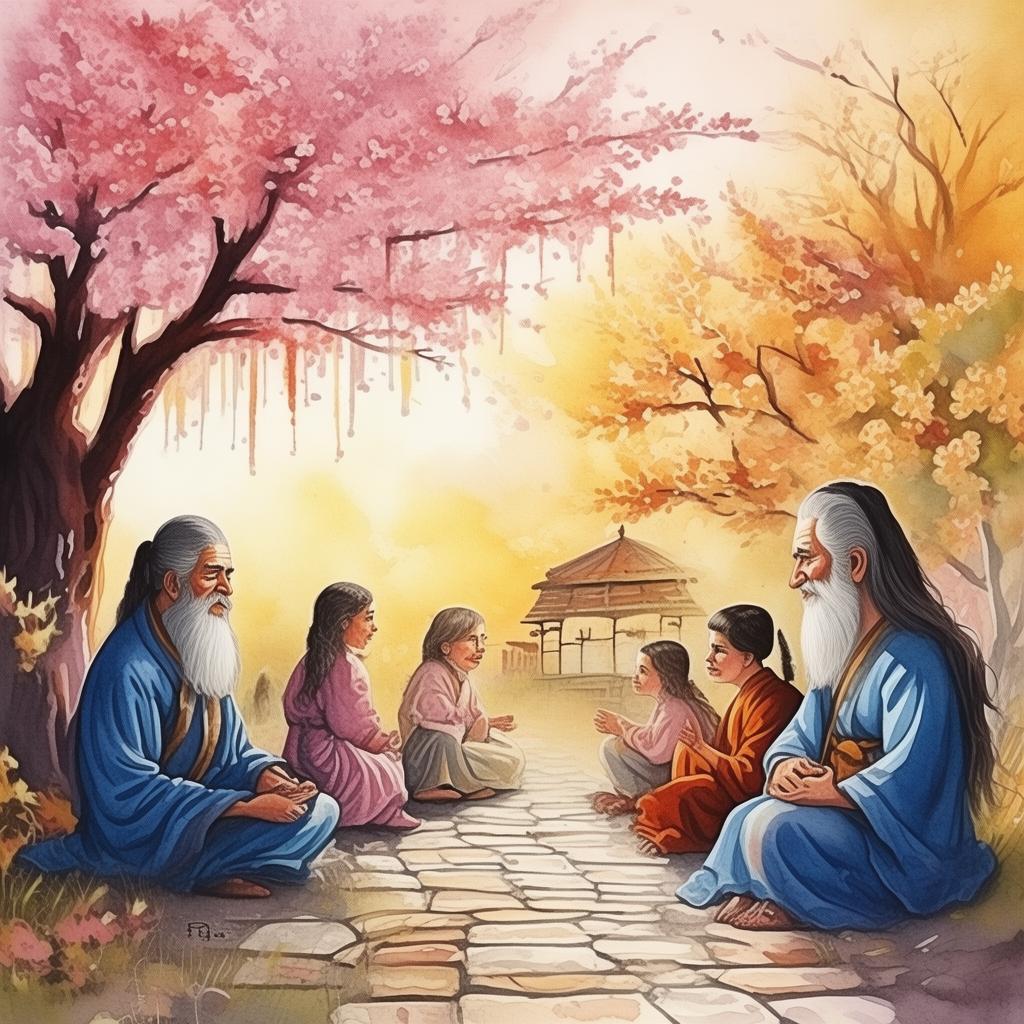
Days turned into weeks, and General Liu found himself drawn to the hospital's garden, a serene place where the wounded could gather to reflect and heal. One afternoon, as he sat on a bench, he noticed a young woman playing the violin. The music was haunting, filled with a sense of longing and sorrow.
He approached her, intrigued by the beauty of her playing. "You play beautifully," he complimented.
The woman looked up, her eyes meeting his. "Thank you, General. Music is my way of healing. It allows me to express what words cannot."
"Is that what you're doing here?" he asked, gesturing to the garden.
"Yes," she replied. "I'm helping the wounded to heal through music. It's a way for them to express their emotions, to find solace."
General Liu listened to her story, feeling a deep connection to her words. He realized that the road to healing was not a solitary journey but one shared by all who had been touched by the war.
As he left the garden that day, a new resolve filled him. He would dedicate himself to the cause of healing, to helping those who had been scarred by war to find peace within themselves and in the world around them.
In the days that followed, General Liu organized a series of events to help the wounded heal. He invited musicians, artists, and poets to the hospital, creating an environment where the soldiers could express their emotions and find solace.
One evening, as the sun set over the horizon, casting a golden glow over the hospital, General Liu stood before the gathered soldiers. "You have all shown great courage," he said. "Now, it's time for us to show great compassion. Let us move forward together, healing not just our bodies but our souls."
The soldiers nodded, their faces filled with a newfound hope. They understood that the road to healing would be long and difficult, but they were ready to walk it together.
As General Liu watched them, he felt a sense of peace settle over him. He had found his purpose, his reason for living, and it was to help those who had been wounded by the war to find healing and redemption.
And so, the general's lament for the wounded became a symphony of healing, a melody that would resonate for years to come, a testament to the human spirit's ability to overcome adversity and find hope in the darkest of times.
✨ Original Statement ✨
All articles published on this website (including but not limited to text, images, videos, and other content) are original or authorized for reposting and are protected by relevant laws. Without the explicit written permission of this website, no individual or organization may copy, modify, repost, or use the content for commercial purposes.
If you need to quote or cooperate, please contact this site for authorization. We reserve the right to pursue legal responsibility for any unauthorized use.
Hereby declared.
